The sense of a place
On identity, borders, and birds.
I stood on the deck in a flannel dressing gown, binoculars fixed to my eyes. A breeze whipped around my bare legs, but the sight was captivating: a simple, little bird.
It was grey at first, but on closer inspection made up of a complex blend of grey and brown and white hues, with a striking flash of bright red beneath the wing. It flitted from the rain-soaked grass to a fence post and back again, quite comfortable with my presence.
It was a black redstart. I had never seen one before. They can be found along the coasts of Britain, favouring industrial and urban sites, although with only 100 breeding pairs my chances of seeing one there are slim.
Happily, one kept me company for the better part of the week I spent in Slovenia.
My partner and I arrived at the turning of the season, at the end of a summer the locals were glad to see the back of. “It’s been hot,” said our taxi driver. “Over sixty days of heat. I’ve never known it like this.” He shook his head sadly and added, almost to himself, “Things are different now.”
The greenery was fading, the first tentative leaves of autumn drifting away on the wind. I shared a cup of coffee with the misty dawn and a lavender alive with bumblebees enjoying the last of the blooming flowers. A hummingbird hawk-moth - the first I’ve ever seen - gifted me with a brief appearance, hovering in a thrumming vibration of paper-thin wings and joining the bumblebees in lapping up nectar.
As the temperature dropped, the rain fell. Thick clouds enveloped the mountains and topped them with the first snow of the season. For two days we were drenched, and the insects sheltered elsewhere, preparing for the approaching winter.
We spent our time hiking. The forests of Slovenia, covering well over 50% of the country, made me ache for what a wooded Britain could feel like. Miles upon miles of emerald canopy and the sweet smelling earth of early autumn, treetops noisy with birdsong. Perhaps it’s easier said than done. Slovenia’s 2 million residents wouldn’t fill a quarter of London.
But not even this vast wilderness is untouched by the human blight of deforestation. Between 2001 and 2023, Slovenia lost 58.7 kilohectares of tree cover, with a sharp jump around 20141. It’s a drop in the ocean compared to the unfathomable damage being wreaked in places like the Amazon and Borneo, but a European ecosystem that regulates temperature and rainfall in its own right is essential to protect.
As I breathed in the cool alpine air I was reminded of Jenny Odell’s exploration of bioregionalism in her 2019 book How to Do Nothing. Patterns of noticing animal communities, mountain ranges and watersheds help her familiarise herself with a new place.
Bioregionalism is first and foremost based on observation and recognition of what grows where, as well as an appreciation for the complex web of relationships among those actors. More than observation, it also suggests a way of identifying with a place, weaving oneself into a region through observation of and responsibility to the local ecosystem.2
Walking and listening and smelling and hearing became acts of connection. As I observed, I was thrilled to encounter not only the black redstart but also the spotted flycatcher, red squirrels, and hear the sharp repeating shrills of the black woodpecker.
But although this landscape was new to me, there was familiarity there too. The sycamore trees sent their seeds spinning through the air, what we as children in the UK called ‘helicopters’. The oak trees littered the earth with acorns that crunched underfoot. The kingfisher darted with its signature flash of blue, and I saw blackbirds, sparrows, nuthatches, great tits, blue tits, dippers, grey wagtails, pied wagtails and chaffinches - all birds that feel to me quintessentially ‘British’ and sit comfortably in the RSPB’s Handbook of British Birds.
When we first arrived in Slovenia, my partner turned to me with the realisation that neither of us had learned a single word of Slovenian. Either due to a simple oversight or a deeper mindset of expectations with which we have been raised in the UK, we subconsciously presumed our English would be understood. As it turns out, everyone we met spoke impeccable English, which only deepened my blush of red as I mumbled through some zdravo and hvala I learned from a 10-minute YouTube video.
There is a form of cultural colonialism at work here, with strong imperial roots. A kind of default national arrogance that spans not only society but also ecology. I was surprised to see so many ‘British’ birds here, in this foreign land, but I shouldn’t have been. Birds have no notion of political borders or of any identity beyond species. This land isn’t foreign at all, it has been here for tens of thousands of years. I am the foreigner, and it is the birds who are looking down on me with all the wariness of locals regarding a stranger swinging open the saloon doors.
So why is it that we expect animals to operate within artificial boundaries? The bald eagle, the famous icon of the freedom and resilience of the USA, is widespread throughout Canada. The Bengal tiger, the symbol of Bangladesh, can be found in India, Nepal, Bhutan, and China. England’s national animal is the lion, a mammal that became locally extinct at the end of the last Ice Age, ten thousand years before England even existed as a country.
Flora and fauna that have evolved on islands in isolation are perhaps more understandably wrapped up in national identity. Australia proudly displays its indigenous kangaroo and emu on its coat of arms, and its monotremes - the echidna and the platypus - feel uniquely Australian (albeit also found in New Guinea).
Looking at Britain’s position in a physical space, geologically and ecologically, it begins to feel decidedly European. Seismic mapping conducted by the University of Bradford as part of a project to study land lost to the sea reveals a place historically very much connected to the mainland.
Considering this, it should not be surprising to find so many British birds across Europe. After all, the full name for the wren that lives in the hedge behind my flat is the Eurasian wren, and can be found across the entire continent between London and Tokyo.
It would be more fitting if my handbook was titled the RSPB Handbook of Birds Who Can Be Seen In Britain But Are Also In Lots Of Other Places Too.
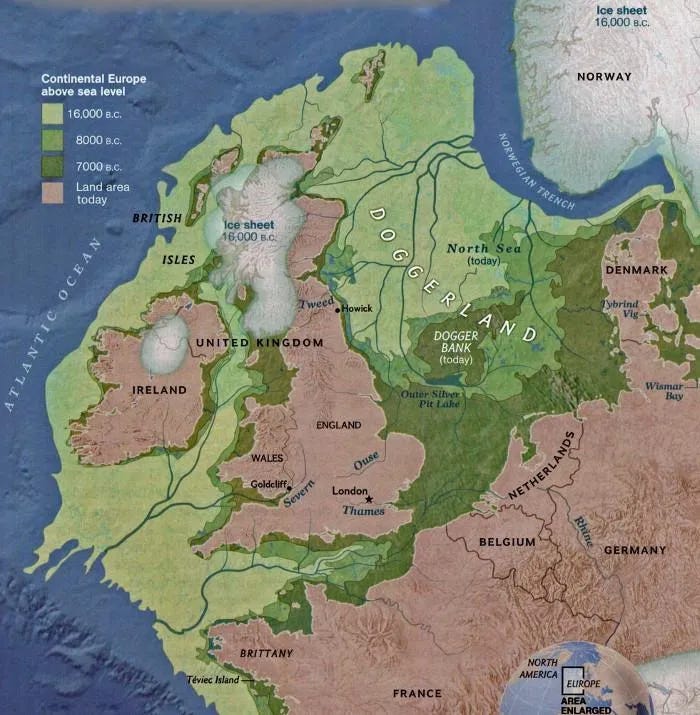
Anecdotally, one of the things I noticed in Slovenia was a lot of EU flags. Across houses, cafes, and supermarkets, the blue and yellow fluttered and sparkled in a way it never did in the UK when it was part of the European Union. In fact, I saw more EU flags than Slovenian flags, and the English flag flying in England is often more associated with far-right nationalism and xenophobia than with a unifying sense of community (international football tournaments seem to be the exception).
Slovenia joined the EU in 2004, only 13 years after it declared independence from Yugoslavia. The separation prompted ten days of bloodshed as part of the wider breakup of the region, much of which caused untold human, environmental and economic damage. But despite a history of imperial rule there is a profound sense of a people who belong in this landscape, with a rich and beautiful language and culture that feels both comfortably Slovenian and European.
Enjoying this free article? You can support Urban Nature Diary by sharing it or buying me a coffee.
Switching on the news today, a stable Europe isn’t so cut and dry. Far right governments seem to be making big strides, alarmingly leveraging an opposition to green policies of sustainability and clean energy and rejecting mountains of scientific evidence in the process. The 2022 Russian invasion of Ukraine shattered a peace that Europe had begun to take for granted and brought war closer to our doorsteps than most of us can remember. But it also awakened something else. As Owen Matthews writes in Overreach:
Putin’s invasion also precisely created the very things it intended to avert. It united Ukraine and gave the country a true sense of nationhood. The war also reinvigorated NATO with a new sense of purpose, money and members, and also reminded the European Union of the post-war anti-totalitarian values on which European integration was first founded. On a more profound level, Putin reminded the democracies of the world that freedom does not just happen - the determinist conclusion that many in the West came to after the collapse of communism - but has to be fought for and defended.3
With the sky-high human and environmental costs of armed conflict, and the bird’s-eye perspective that everything is connected, it can be tempting to champion a purely global, humanist approach to society. But identity is complex and nuanced, and this reductive view undermines the generations of people who have stood up and died in defence of their culture or ethnicity. Increasing homogenisation and Westernisation of culture and economy is also detaching humans from the natural world further than ever before, and indigenous peoples around the globe with all of their deep, essential bioregional knowledge are fading away.
Seeing the EU flags in Slovenia gave me a feeling of melancholy. I believe there is strength in international unity and community and that it does not have to come at the cost of identity.
It might be insignificant in the context of ethnic and cultural atrocities being committed today around the world, but for me the question of identity often rears its head when I am asked to list my background on forms. Am I English? British? European? I have lived in the UK my whole life, but I can trace family members to other parts of the world. My family name Winward comes from the Old Norse word for vinyard, so there is likely Viking blood somewhere down the line courtesy of Scandanavian invaders.
Self-identity is also wrapped up in work. Often one of the first questions people ask at a party or a gathering is ‘What do you do?’ This commercialisation of the self, the idea of a personal brand, arguably emanates from a consumerist culture that associates individual worth only with wealth or productivity.
How do I answer that question? What do people really want to hear? I can tell them that I work from 9am to 5.30pm creating videos for a climate change non-profit organisation. It would be true, but is that all there is to me?
I enjoy nature photography but I’ve never been paid for it. I have written a dozen feature films and TV pilots and made several short films but I’ve never been paid for them. I make corporate videos but I prefer making documentaries. I have a broad range of interests from literature, music and art to film and video games. I like to think I am a good friend and a loving partner and empathetic towards those born in difference circumstances, but I’m forgetful and take things personally and dwell on mistakes for too long. I love to dance and I can’t sing very well and I like being barefoot on the grass but I don’t like having wet feet or sand between my toes. I have fiercely held beliefs in the importance of protecting and restoring our natural world and fighting fossil fuel expansion but my boiler runs on gas because I am also a citizen of the carbon economy. I embrace all of these parts of me, the light and the dark, and shift and change with the seasons to create an identity that is whole.
But try telling that to someone you just met at your cousin’s wedding.
Slovenia welcomed us with open arms.
We spent a few days in a small apartment in Bled, a popular destination with a lake at its heart. Its azure glacial waters were clean and silent, with only rowing boats and electric motors permitted. The sun shone gloriously from cloudless skies when we arrived. After hiking around the lake for a couple of short hours (including photography stoppage time while my partner waited patiently), we headed to one of the dedicated swimming spots and stripped off.
Watched and later joined by both visitors and locals, I stepped into the cold blue and fish darted away from my feet. The air sang with voices in all languages, and the thrum of buses and minivans and bikes and boats and toddlers and elderly people and the ringing of the old church bell swirled and blended to form a unique soundscape.
I swam out as far as I dared, and beneath me was a deep, impenetrable darkness. I lay back and floated, immersed in the cool water with the sun warming my face. A bird of prey I couldn’t identify wheeled high above me, looking down on a world it saw only as blue and green and a widening expanse of human grey.
My ears filled with water and the noise of the world faded to a low murmur, and I allowed myself to simply be me.
How To Do Nothing: Resisting the Attention Economy, Jenny Odell (2019)
Overreach:The Inside Story of Putin's War Against Ukraine, Owen Matthews (2023)
Disclosure: If you buy a book via a link to Bookshop.org I may earn a commission, whose fees support independent bookshops.



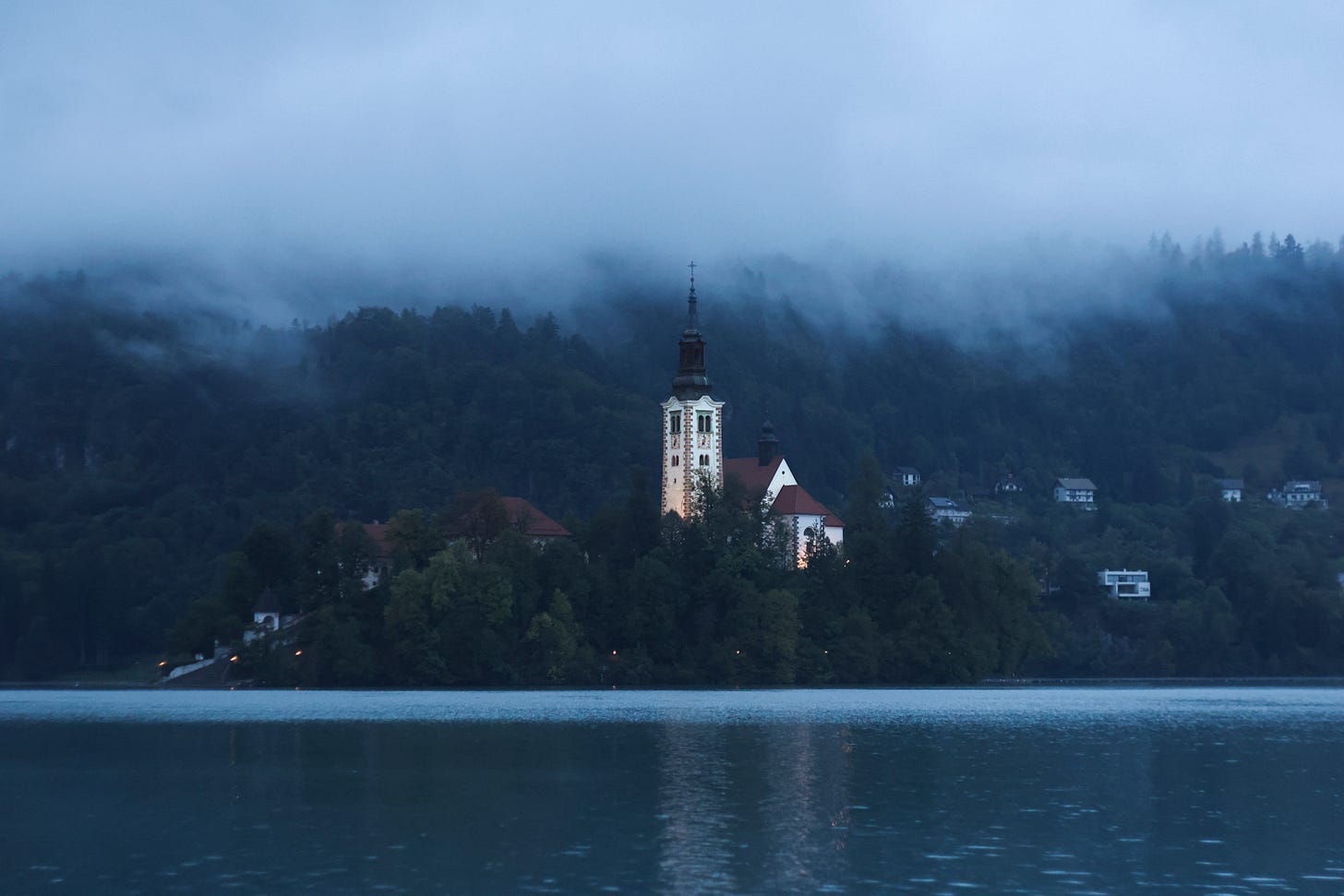
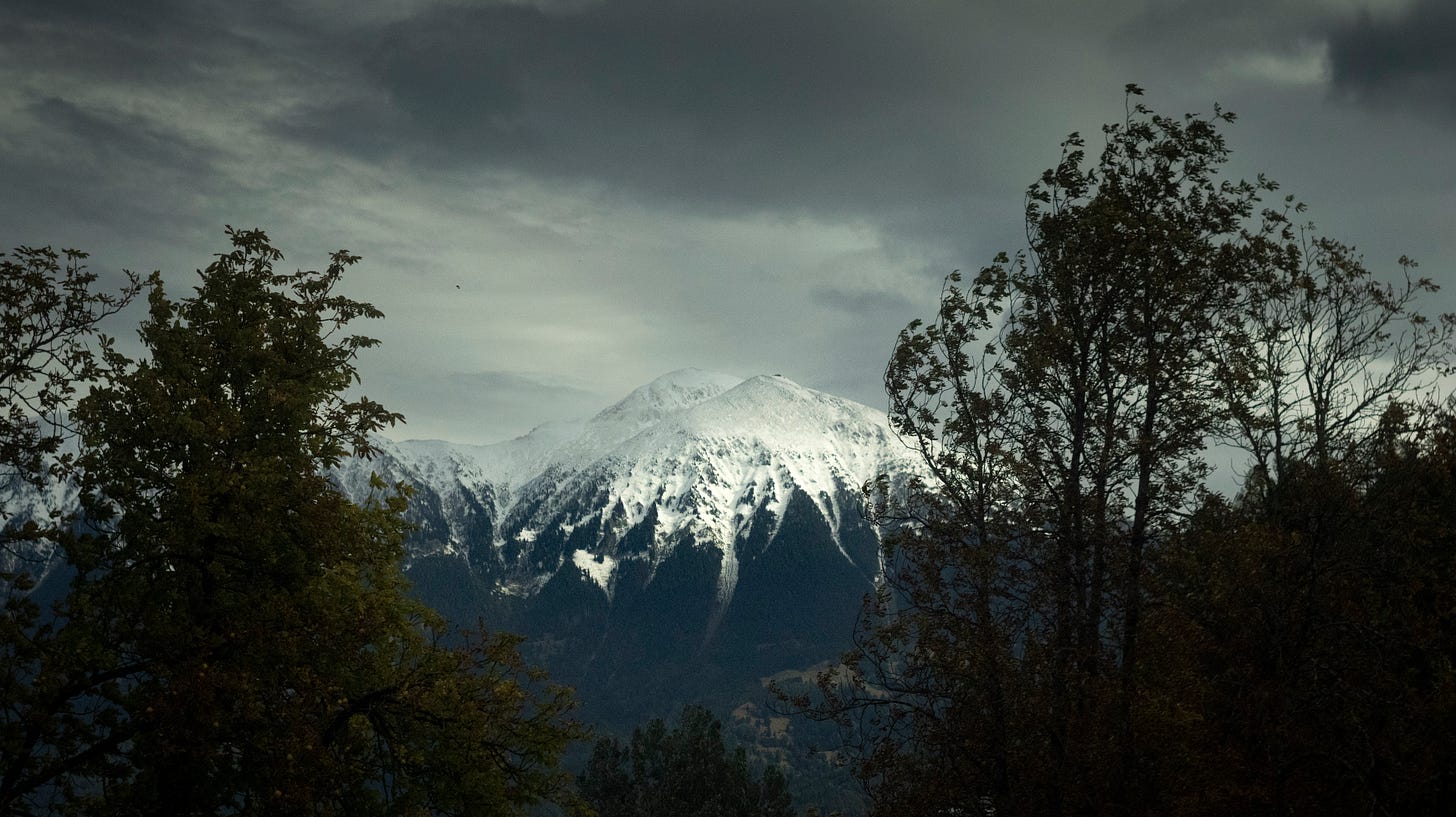
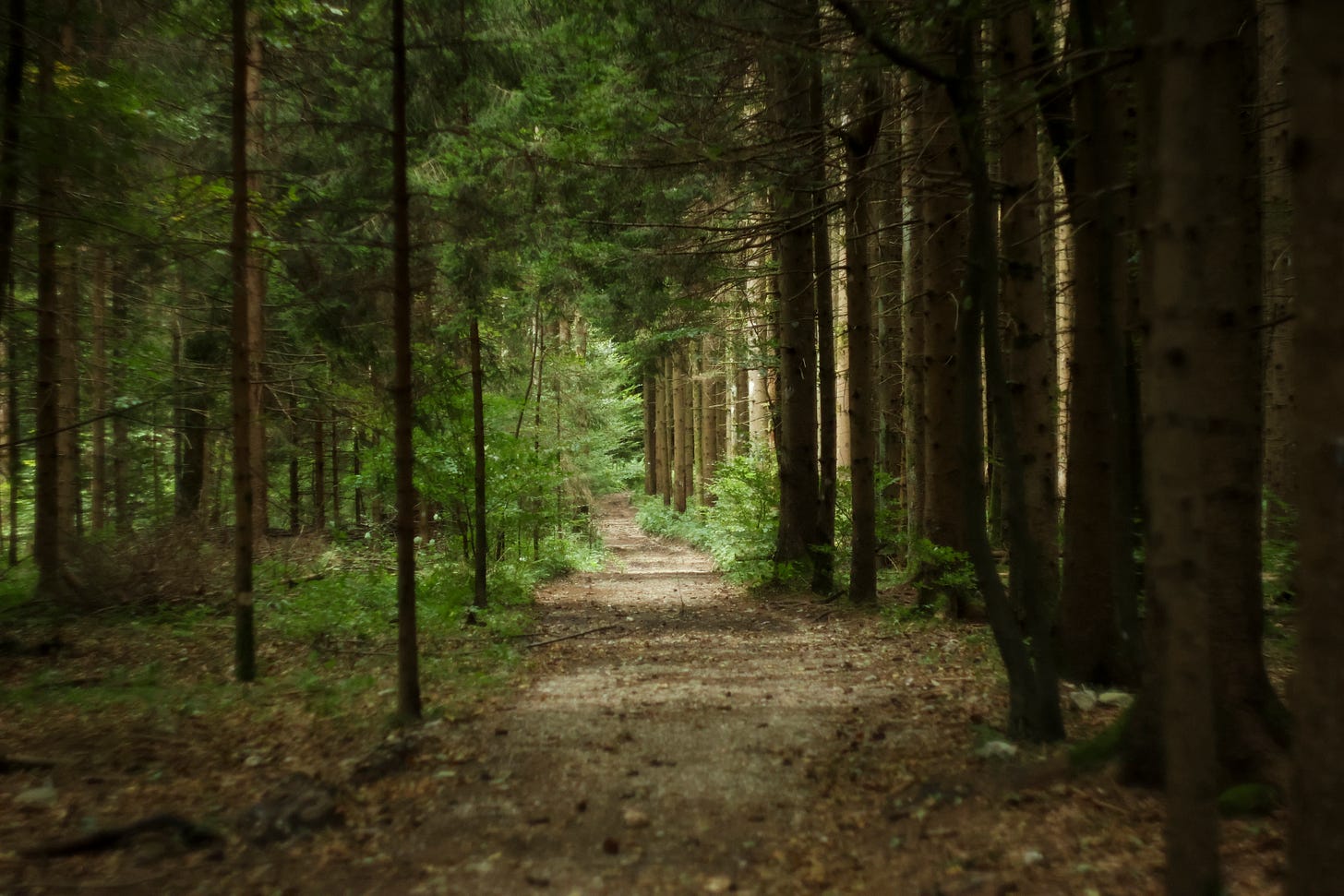
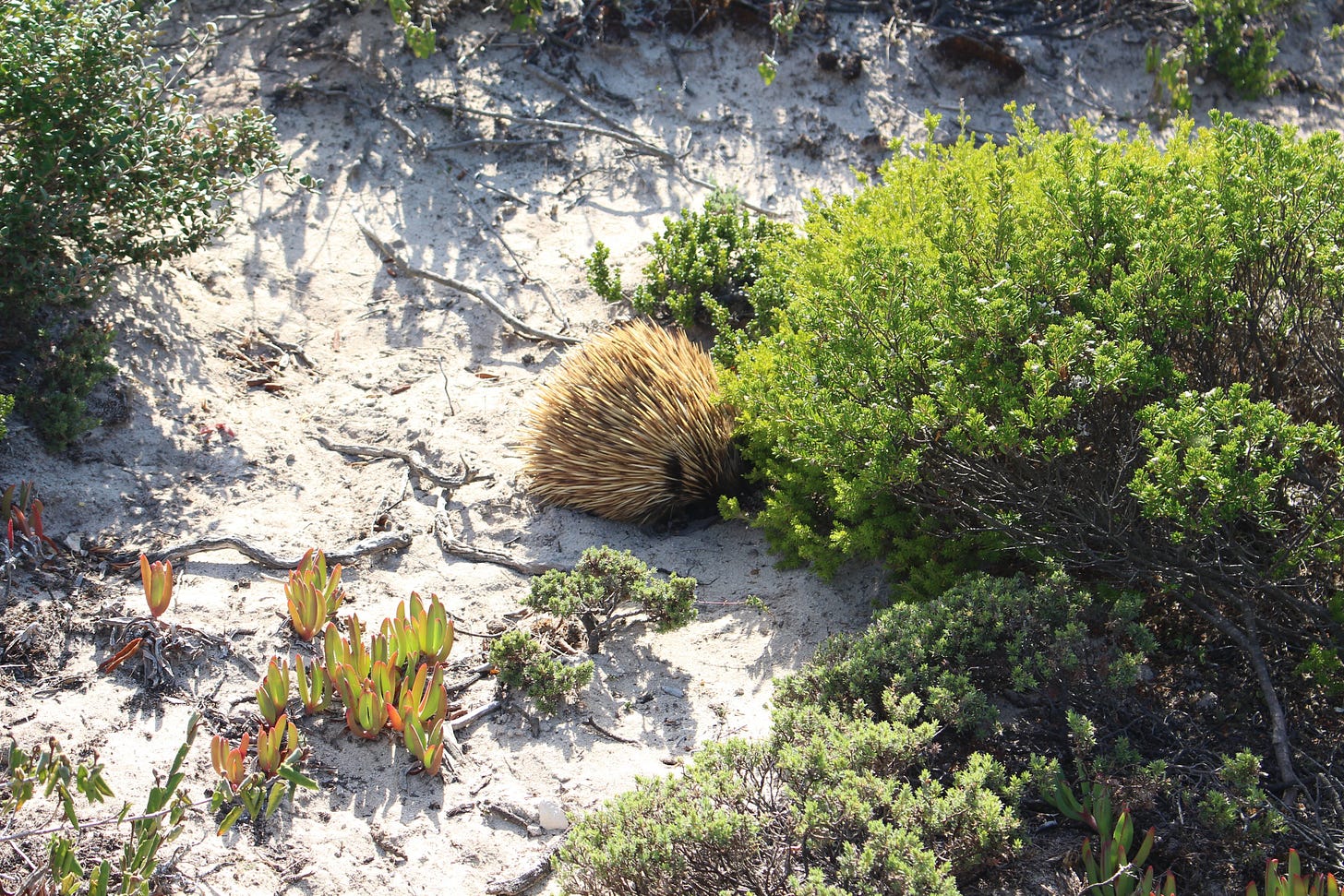
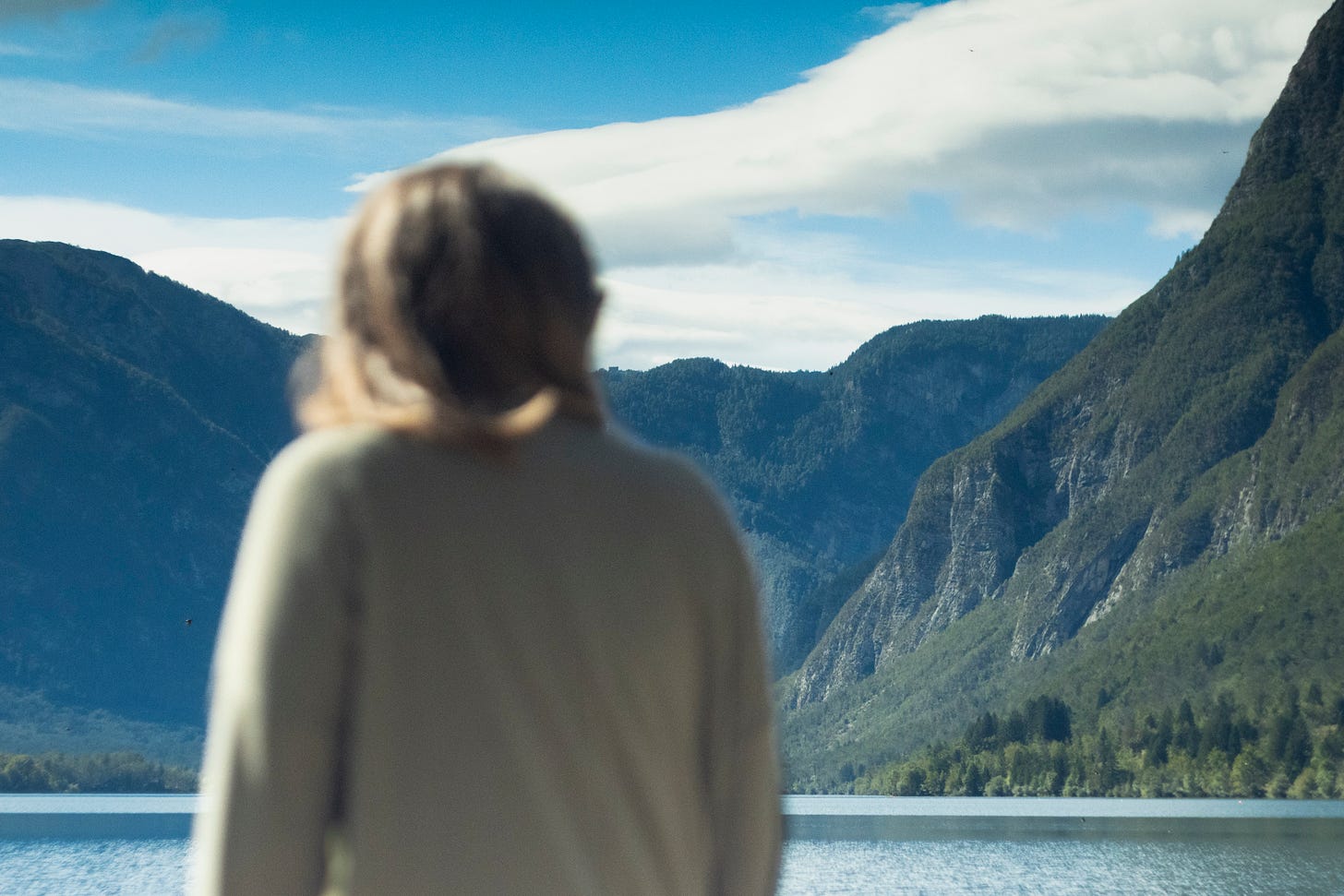
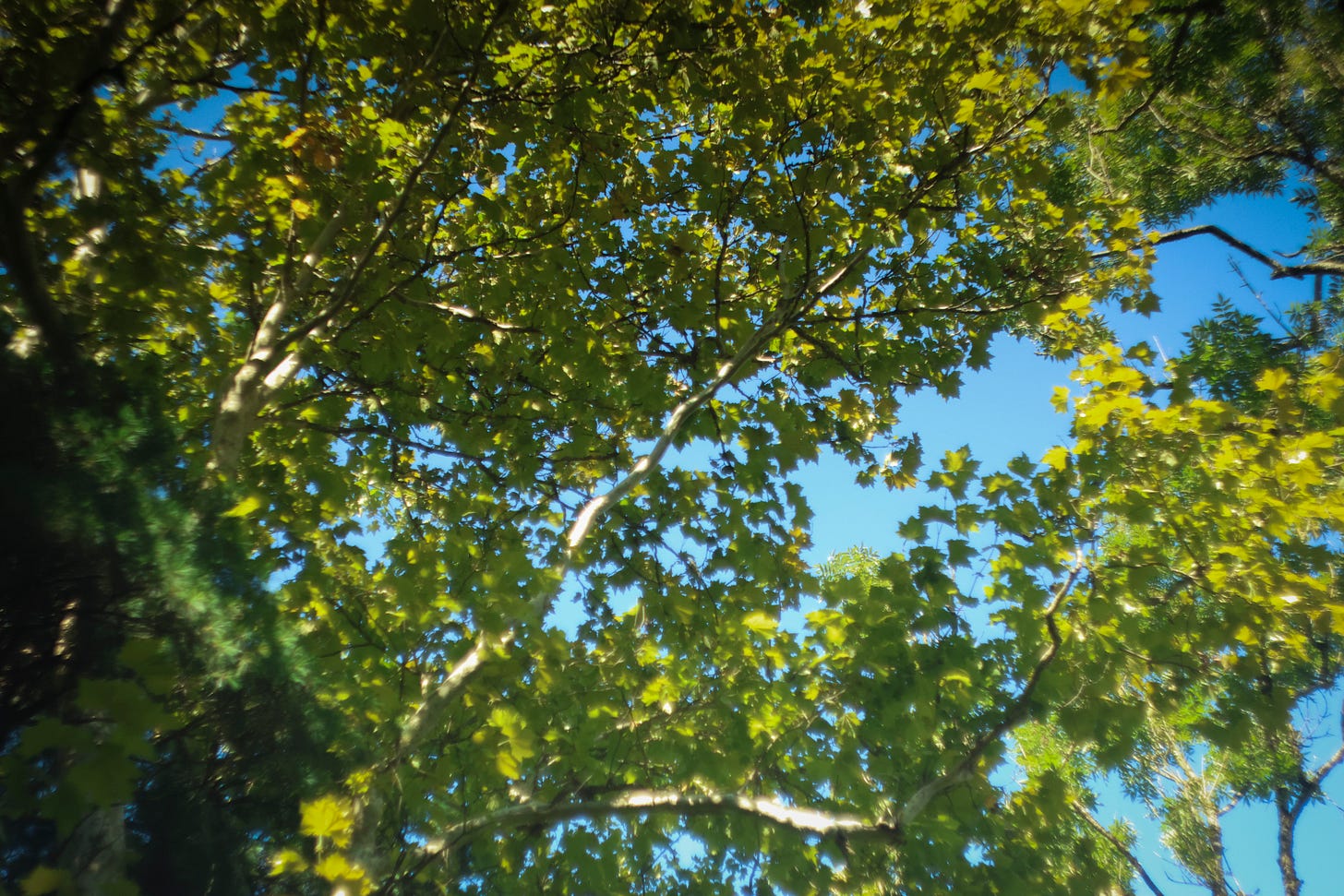
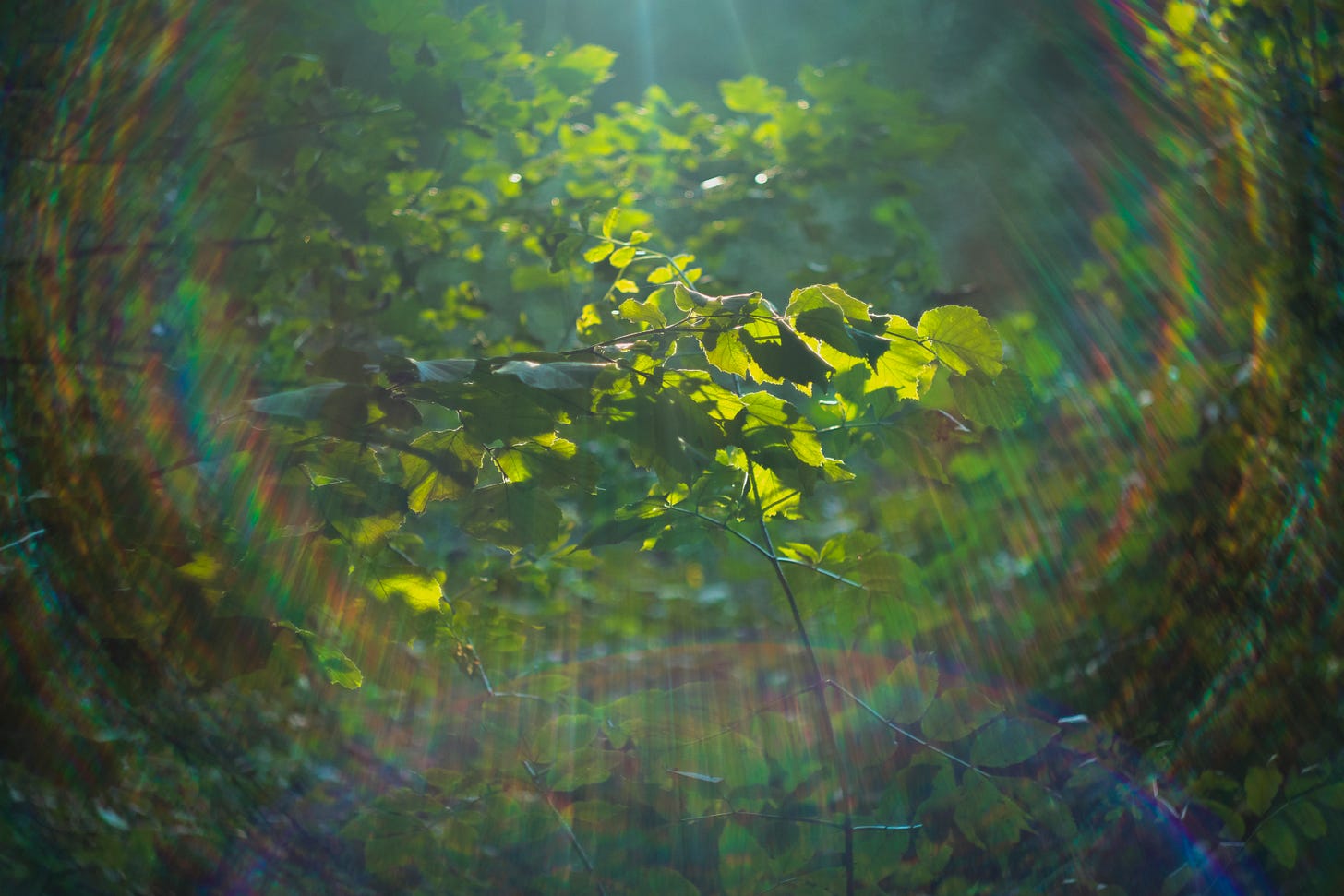
Yep, I'd agree with all that Michael J McEvoy says above!
Lovely reading. Without going into a raging fit, I think we should have more EU flags here in my country and do more to cultivate the privilege to belong to it.
I find it too very hard to describe myself as I have many hobbies, interests, flaws and so on!